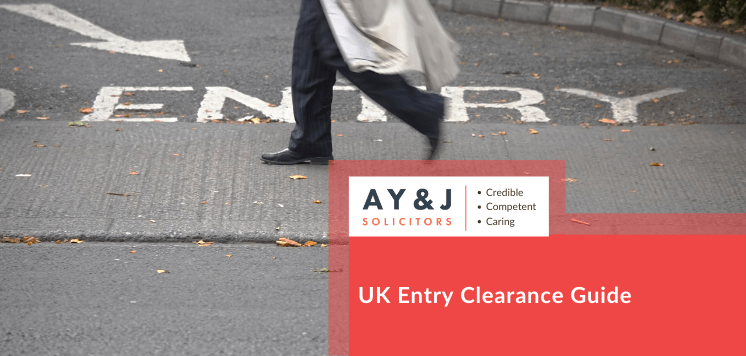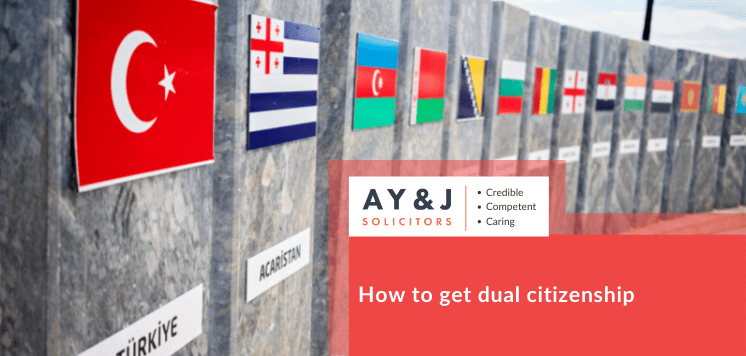There are two key pieces of UK legislation that govern the requirements for UK Entry Clearance:-
- The Immigration Act 1971 (and subsequent immigration and asylum acts); and
- The Immigration Rules
Law contained in these provisions regulate how and when people subject to immigration control may be granted permission to travel to and stay in the UK. These permissions are otherwise known as:-
- “Leave to enter “the UK (permission granted at the border)
- “Entry clearance” (visas granted from outside the UK) and/or
- “Leave to remain” (visa granted from inside the UK).
The law sets out the criteria that must be met for entry clearance, leave to enter and leave to remain to be successfully granted and also provides for circumstances when leave to enter, entry clearance or leave to remain can be refused, cancelled or curtailed (cut short).
The blog specifically covers aspects of Entry clearance requirements, including an overview of the Entry Clearance application process, commonly required documentation, and a sober warning of some circumstances when Entry can be refused.
Understanding Entry Clearance
If are an overseas national planning a move to the UK to study, work or settle with family, you are normally required to seek Entry Clearance before travelling to the UK.
Entry Clearance is the term given to describe the permission granted by the Home Office to an individual, following their successful application for a UK visa, made from overseas.
The Home Office’s online guidance on Entry Clearance (ECB3) published 1 January 2013, states:
“Entry clearance is the procedure used by Entry Clearance Officers (ECOs) at British missions overseas to check, before a person arrives in the UK, if that person qualifies under the Immigration Rules for entry to the UK. In some cases entry clearance is mandatory, in others, it is optional. In all cases, the authority to admit someone to the UK ultimately rests with the Immigration Officer (IO) at the port of entry.
Who requires a UK Entry clearance?
The Immigration Rules specify (Part 1, paragraph 24) that UK Entry clearance is required for the following people to be admitted to the UK:
(i) a visa national;
(ii) a non-visa national not a British national and is seeking entry for a period exceeding six months, or for a purpose for which prior entry clearance is required under these Rules;
(iii) a British national without the right of abode who is seeking entry for a purpose for which prior entry clearance is required under these Rules.
must either:
- produce to the Immigration Officer a valid passport or other identity document endorsed with a United Kingdom entry clearance, issued to him for the purpose for which he seeks entry, which is still in force,
or:
(ii) where he has been granted a United Kingdom entry clearance which was issued to him in electronic form for the purpose for which he seeks entry and which is still in force, to produce to the Immigration Officer a valid passport or other identity document.
Such a person will be refused leave to enter if he has no such current entry clearance. Any other person who wishes to ascertain in advance whether he is eligible for admission to the United Kingdom may apply for the issue of an entry clearance.
Entry Clearance for non-visa nationals
In some circumstances, non-visa nationals do not require prior Entry Clearance to enter the UK for a purpose covered by the immigration rules. For example, a non-visa national may visit the UK for up to 6 months at a time, without applying for entry clearance, provided they can provide evidence of their nationality, and qualifying reasons for entry as a visitor, at the border.
Even where Entry Clearance was not a prior requirement, the decision to grant “Leave to Enter” can and will be decided by a border officer. A border officer reserves the right to refuse “Leave to Enter” if they have reasonable grounds to do so, such as the entrant’s lack of evidence that they are a genuine visitor or grounds to believe the person will breach the conditions of their Leave to Enter, after entry to the UK.
For some entry routes, applicants require prior entry clearance, whether or not they are a visa national. For example, anyone applying for a Skilled Worker visa requires Entry Clearance to be admitted to the UK under the category – even non-visa nationals.
Entry clearance usually takes the form of a passport sticker for visa nationals and non-visa nationals (where required).
Some applicants (for example EU/EEA nationals) may be issued with an entry clearance certificate issued in electronic form. Electronic documents, which can be verified online and have no official physical manifestation, are considered proof of the holder’s eligibility for entry into the UK, for the purpose that the entry clearance was granted.
Entry clearance application process
While making an entry clearance application, the applicant must be outside the United Kingdom at the date of the application. The date of application is normally considered to be the date the fee is paid online to the Home Office.
One must note that the application for Entry clearance can only be made from outside the UK and from not within the UK. (Applications for Leave to Remain are governed by a different set of rules.)
An application for an Entry Clearance as a UK visitor or as a UK short-term student can be made at any overseas post. This is outlined in paragraph 28 of the Immigration Rules part 1. The applicant does not need to apply from their country of nationality/normal residence for these types of Entry Clearance application. This means that they can even be a visitor in the country they apply from.
The paragraph also goes on to outline the circumstances under which applications for Tier 5 (Youth Mobility Scheme) visas and Global Talent Visas can be made from overseas countries where the person does not necessarily have residency.
For other applications made inside the Immigration Rules, the applicant must be a national of the country from which they are applying for Entry Clearance, or otherwise be able to show their evidence of lawful residency (not as a visitor).
The Home Office’s online guidance on Entry Clearance (ECB5) published 2 April 2020, also reiterates the guidance contained in the Rules.
Once you have completed the online application and paid the fees, you need to book an appointment to visit a local overseas visa application centre to process your relevant documentation.
A physical appointment is not required for those who have been able to verify their identity using the Home Office’ Identity App (currently available for only certain applicants, including EEA nationals).
Those applying for Entry Clearance to the UK for more than six months, will not only receive a sticker in their passport (Entry Clearance) to travel to and enter the UK – they will also need to collect a Biometric Residence Permit (or visa) within 10 days of entering the UK, from a pre-designated location. The location for collection will have been selected in advance, when applying for the visa.
The visa fee payable will depend on the type of visa you are applying for.
You can get the complete list of all the visa fee(s) from the government website.
Most applicants also need to make payment of an additional Immigration Health Surcharge which is currently set at £624 per year that their visa is issued (for adults) and £470 per year for children. This fee, when applicable, is a mandatory part of your visa application.
The Burden of Proof: Avoid Entry Clearance refusals
The entry clearance officer (ECO) checks whether the information and documents submitted in support of the Entry Clearance application fulfil all the requirements of the relevant Immigration Rules, in order to grant the applicant.
The Burden of Proof rests with the applicant to prove that they have genuine intentions to enter the UK in line with their permission, and that requirements of the visa category have been fully met.
Furthermore, where the applicant does not produce enough evidence, or the evidence produced is inadequate to show that they fulfil the eligibility requirements of the relevant category of the Rules, the ECO or Immigration Office could refuse the application.
An Entry Clearance application can also attract a refusal if the ECO discovers, in consideration of the application:
- You previously breached the UK law
- You have received a deportation order against you
- You have certain criminal convictions or have recently committed a serious offence
- Your current or historic behaviour demonstrates a bad character
- You have submitted false representations or documents in support of the application (or a previous application)
The Home Office may also come to the conclusion that admitting you to the UK may not conducive to the public interest and good (refusal for personal or wider policy reasons).
Entry clearance granted
When your Entry clearance application is approved, you will get an endorsement in the form of a sticker (also called a “vignette”) on one of the blank pages of your passport or travel document.
This endorsement means that you can now enter the UK under the route you applied for.
The vignette also confirms the validity period of your Entry clearance, including the exact start and expiry dates.
You must strictly adhere to the conditions of your visa. For example, if explicitly restricted, you cannot access public funds (i.e. state benefits).
Depending on the route, your Entry Clearance may also prohibit work outright or maybe allow work, but with strict limitations.
When mandatory for entry to the UK, if you are unable to produce a valid Entry Clearance document, you will be refused leave to enter the UK at the border under the relevant category. This the consequences of which will often mean that you will be detained at port and instructed to leave the UK immediately, on an outbound flight. A refusal of Entry Clearance will be recorded on your UK immigration history.
Final words:
Entry Clearance application is not always, but often needed by overseas nationals to enter the UK for a variety of reasons, including tourism, work and study. Failing to produce mandatory evidence of Entry Clearance could result in the refusal of entry to the UK, at the border. This blog has outlined how, in general, a successful entry clearance application can be made. It is imperative to carefully consider the guidance mentioned above, as, a refusal of Entry Clearance can adversely affect your future plans to travel to the UK.







